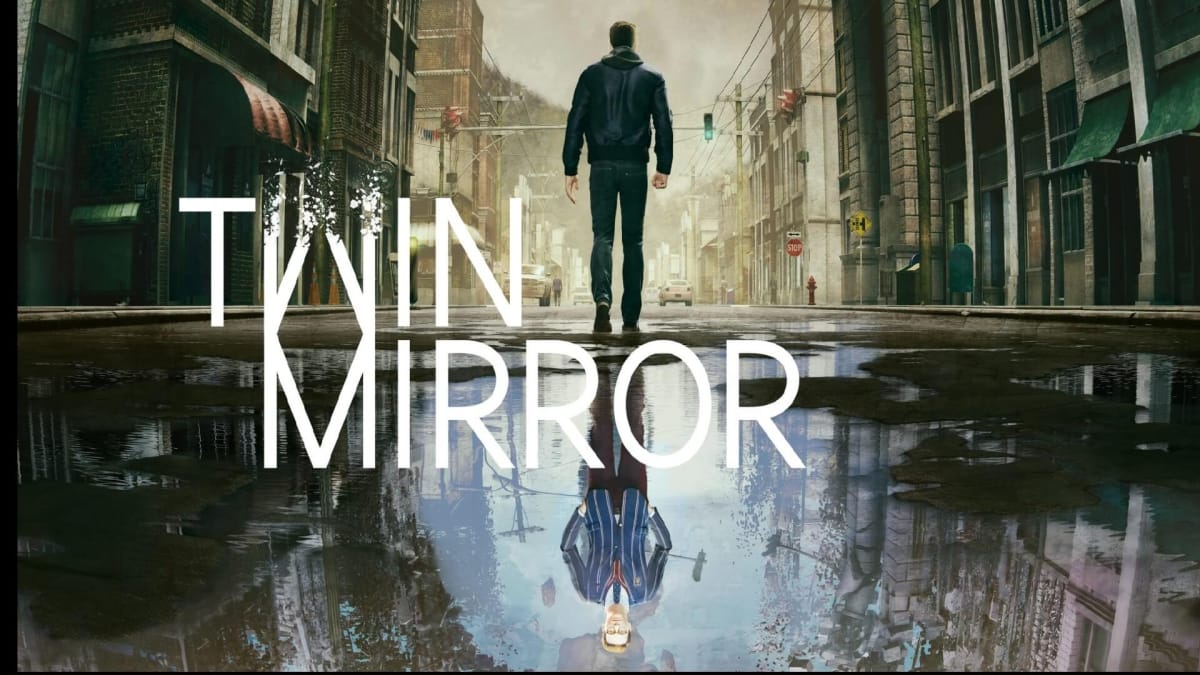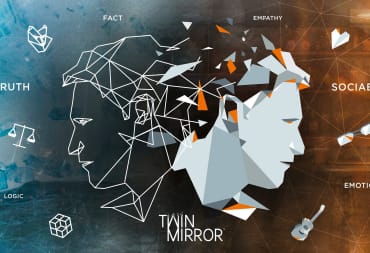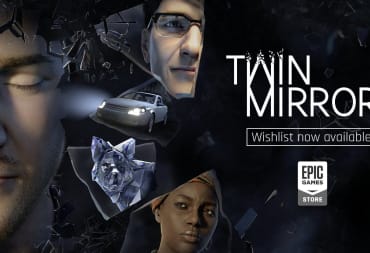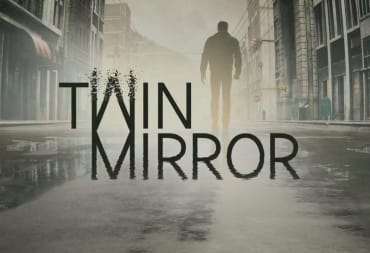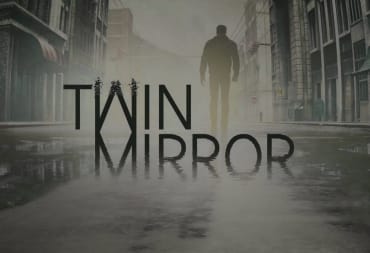DONTNOD Entertainment's 2015 adventure title Life is Strange has earned a spot on my list of all-time favorite games. The heartfelt writing, the thrilling anticipation, the actual consequences of my choices and the believability of the characters are all just parts of why it will stick with me forever. There is some sort of X Factor, some unnameable thing that DONTNOD's later titles (Vampyr, Life is Strange 2, Before the Storm, and Tell Me Why) have been missing. Although the adventure isn't as meaty as I'd have liked, Twin Mirror has finally found that X Factor again.
Twin Mirror is an adventure game heavy on dialogue choices that alter the story supplemented by a few well-constructed puzzles in the form of Sam's Mind Palace. Twin Mirror is, unlike its spiritual prequels Life is Strange and Tell Me Why , a full game upon release. There are no episodes to wait for this time around, and the story is much better for it. It took me a little over seven hours to finish Twin Mirror, and while the conciseness helped keep up the thrill of the mystery I can't help but feel that there should have been more.
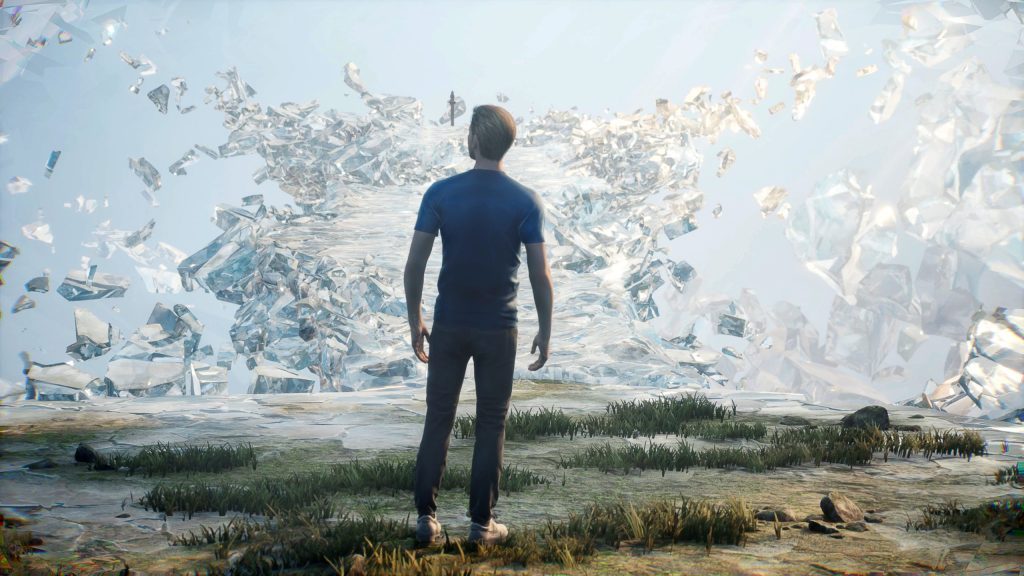
That Cozy, Small-Town Feeling
DONTNOD Entertainment has always focused on personal stories that have a larger impact and higher external stakes - while Vampyr, for instance, is in concept about fighting off the Spanish Flu and a vampire apocalypse, it is really a story of one doctor's battle with himself to come to terms with what he has made his sister into. Twin Mirror shifts the needle all the way to the left and foregoes the traditional world-ending event; this is a simple story about the simple, hardworking folks of Basswood, West Virginia, and two journalists' plight to find the truth.
Investigative journalist Sam Higgs returns to his hometown after being cast out in shame two years prior. His report on the unsafe working conditions of the mine that Basswood depended on got the entire operation shut down and, while potentially saving thousands of lives, drove the entire town to abject poverty. He returns for what is likely the only thing that could bring him back - the death of his lifelong best friend, Nick. Although dead from the moment the game begins, I strangely feel that I know Nick just as well as the characters who I actively interacted with - his work is the active driving force of the narrative and is what brings Sam and his ex-girlfriend Anna to the truth.
Nick's pre-teen daughter, Joan, has latched onto a supposedly outrageous theory that the car accident which killed her father was no accident. She begs Sam to investigate his death and, against his better judgement, he agrees. Sam is of a one-track mind, obsessed with finding fact and dismissive of the people that stand in the way of that truth. He seems to be missing the significance of the human element of the mystery, and that's where his mysterious assistant comes into play.
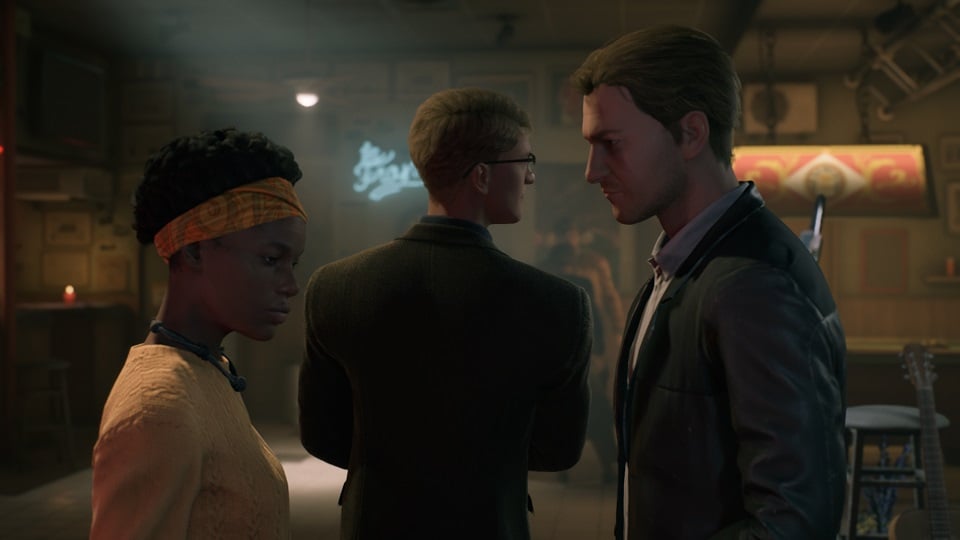
Enter the Mind Palace
Sam's mind doesn't work quite the same way yours probably does. Inside Sam's head is another version of him, a more personable, understanding Sam, ominously named Him. The inner Sam appears to be the part of him that understands other humans, while the Sam that walks the earth is the one that operates entirely on hard facts and logic chains. I'd describe them roughly as a left-brain and right-brain Sam, leading me to think he may be working with a mental condition that has split his personality. But I digress; I am certainly not an expert on the subject.
We as humans like closure in our fiction because we don't often receive it in real life. Removing such an essential part of a fictional narrative left me on edge for a few hours after finishing...
When in one of the many branching dialogue trees, Sam can sometimes consult Him for a little help as to what he should say. I found these tips helpful and they don't give away exactly how to make the conversation go well. For instance, inner Sam might say "She's feeling useless. Tell her what she wants to hear right now so she can make sense of it" and then it's up to the player to figure out which prompt fits that suggestion. These decisions in dialogue had clear and distinctive effects - I replayed the last half hour of Twin Mirror and can confirm that the tiniest dialogue choices can have massive repercussions by the end. Inner Sam will also guide the player through the mind palace, a dynamic, ever-shifting world where he uses deductive reasoning to solve large-scale logic puzzles along the way.
The Mind Palace did a wonderful job of making me feel like a detective in a way that not many have done before. When collecting clues, Sam will assemble what is essentially a set of dynamic building blocks that the player will need to arrange correctly to make sense of the event. The player will wander around the scene of the crime, adjusting and tweaking various variables until the scenario makes sense. The Mind Palace did an excellent job making me feel smart, probably much more than I had any right to. Using deductive reasoning, elimination and trial and error I was able to slowly piece together exactly what happened in each location. The unfortunate news is that the Mind Palace detective game play is used only four times throughout Twin Mirror. There are also four very clunky mini games that felt awful to play, but each only lasted about three minutes. Still, they were strange interruptions in an otherwise streamlined narrative.
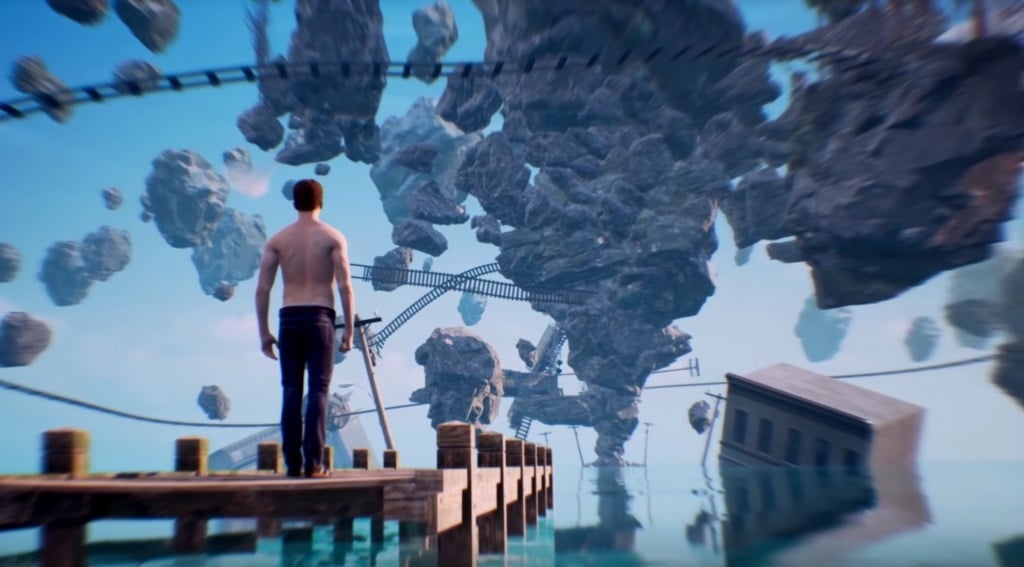
Chasing the Truth Is a Never-Ending Job
While I don't want to spoil the plot of Twin Mirror, I must levy this one critique - you are not going to feel closure upon finishing the game. The morale of the story is that people are more important than the truth - while Sam hasn't closed every loose end and questions still abound, the player will have to come to terms with the fact that stories aren't often tied in a neat little bow in the real world. I don't want to say I felt outright shafted, but Twin Mirror very intentionally ends when it does to make a point.
That being said, I still very much enjoyed the characters. They were believable, real people. Anna, Nick, Joan, Walter and even Sam all felt like people I have met before, people I have formed relationships with before. Sam struck me as a particularly interesting protagonist by the end - the question of whether to chase the truth at the expense of the human element or accept that we cannot know everything wracks his brain from start to finish. While not playable, Anna serves as an invaluable and three-dimensional deuteraganist and brings a little more personality to the narrative.
Overall, I greatly enjoyed my short time with Twin Mirror. I think it is the exactly right length for a game of this kind, but the intentional cutting of the narrative left me feeling a little cheated. We as humans like closure in our fiction because we don't often receive it in real life. Removing such an essential part of a fictional narrative left me on edge for a few hours after finishing, although I maintain that it was excellently written the whole way through. The Mind Palace mechanic was brilliant but underused; two or three more puzzles would have made Twin Mirror feel like it reached its potential. Still, Twin Mirror is thematically consistent; the focus on personal relationships instead of large-scale disasters in small-town America lands Twin Mirror just behind Life is Strange on my rankings of narrative-driven adventure games, and that is perhaps the best praise I can give it.
Review Summary
Pros
- Genuinely Makes The Player Feel Like a Detective
- A Personal Narrative with Real, Small-Town Stakes
- Believable and Well-Written Characters
Cons
- Open-Ended Finale Provides No Closure
- Strange, Clunky Mini-games
Have a tip, or want to point out something we missed? Leave a Comment or e-mail us at tips@techraptor.net
